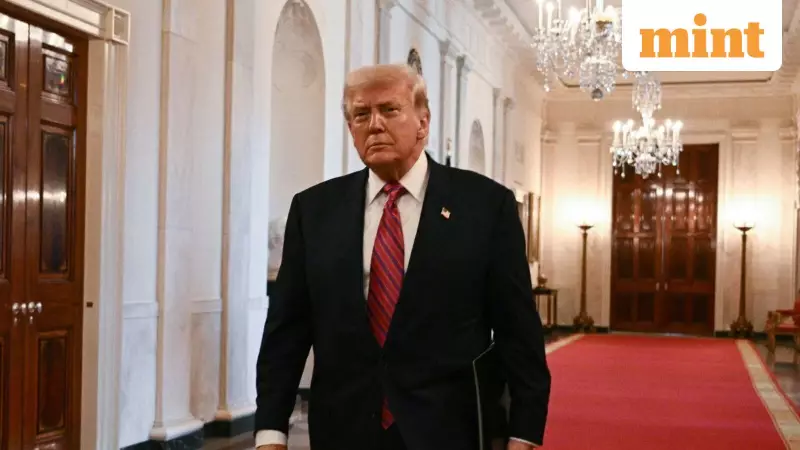
Democratic lawmakers on the House Oversight Committee have made public three significant emails from Jeffrey Epstein's extensive document collection, alleging former President Donald Trump's awareness of and involvement with underage victims in the sex trafficking network.
What The Released Emails Reveal
The disclosed correspondence includes a 2011 message Epstein sent to his confidant Ghislaine Maxwell, which stated that Donald Trump had spent considerable time at Epstein's residence with a victim of sex trafficking. In another communication from 2019, Epstein told a journalist that Trump was aware of the underage girls involved in his operations.
These emails were selected from a massive collection of 23,000 documents currently under review by congressional investigators. The release has ignited fresh controversy around the Epstein case and its connections to powerful political figures.
Trump's Response and Political Fallout
Former President Trump quickly responded to the email disclosures through social media, labeling the Epstein allegations as a Democratic distraction tactic aimed at diverting attention from the recent government shutdown that concluded just hours before the email release.
House Republicans have supported Trump's position, arguing that the selectively released emails provide minimal new information and represent a politically motivated maneuver. They emphasized that the documents offer little substantive evidence beyond what was already known about the Epstein-Trump relationship.
Key Figures and Timeline
Republicans on the Oversight Committee identified the victim mentioned in the email exchange as Virginia Roberts Giuffre, who was just 16 years old when Maxwell recruited her while she worked as a spa attendant at Trump's Mar-a-Lago property in 2000.
The timing of Epstein's 2011 email coincides with Giuffre's first public allegations against Epstein, when she told a British tabloid about being abused and trafficked, sharing the now-famous photograph featuring herself, Prince Andrew, and Maxwell.
Additional email exchanges reveal that journalist Michael Wolff encouraged Epstein to adopt an anti-Trump position during the 2016 presidential campaign. In one email with the subject line "Now could be the time," Wolff suggested Epstein could damage Trump's campaign by speaking out, though it remains unclear what specific information Wolff expected Epstein to reveal.
The documents also shed light on Epstein's interest in Trump's nomination of Alexander Acosta as labor secretary in 2017. Acosta had been the US attorney in Southern Florida when Epstein secured a controversial plea deal in 2008 that allowed him to avoid federal sex-trafficking charges.
During Acosta's confirmation hearing, he defended the plea agreement as appropriate based on evidence available at the time. He eventually resigned in 2019 after Epstein faced new charges in New York, bringing renewed scrutiny to his role in the original agreement.
Shortly before Epstein's arrest in July 2019 on federal sex-trafficking charges, his adviser Richard Kahn emailed him about Trump's financial disclosure forms, describing them as "100 pages of nonsense." The purpose of this financial examination remains unknown.
The email release represents the latest development in the ongoing investigation into Epstein's sex trafficking network and its connections to high-profile individuals, ensuring continued political and legal scrutiny of all involved parties.





